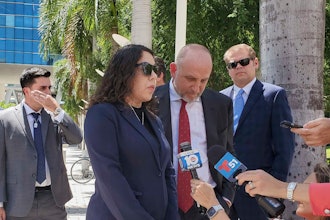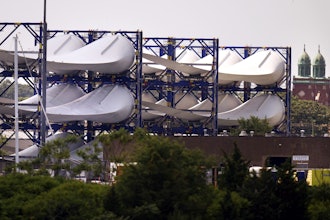
SACRAMENTO, Calif. (AP) — California won't enforce the nation's toughest state-level net-neutrality law when it takes effect in January, agreeing Friday with the Trump administration and internet companies who sued that the state law should wait for the outcome of a separate lawsuit pending in Washington.
Attorney General Xavier Becerra made a joint filing with lawyers looking to block the law asking a federal judge in Sacramento to put the California case on hold for now.
California's net-neutrality law was celebrated nationally by advocates looking to preserve rules preventing internet companies from speeding or slowing certain content online. It mimicked federal rules adopted during the Obama administration and rolled back under Trump.
"Every step we take, every action we launch is intended to put us in the best position to preserve net neutrality for the 40 million people of our state," Becerra, a Democrat, said in a statement.
Supporters of California's law were not disappointed by the delay, which Becerra suggested was in the best interests of California's case.
"This isn't a setback," said Ryan Singel, a fellow at Center of Internet and Society at Stanford Law School, who supports the law. It was expected that the law would be put on hold, he said, "and it's ready to go into effect once the federal decision comes down."
In rolling back the national net-neutrality rules, the FCC said states could not pass their own internet regulations. The legality of that federal pre-emption is a central issue in the lawsuit challenging the FCC's order, which is scheduled for arguments Feb. 1 in the U.S. Circuit Court of Appeals for the District of Columbia.
Until it's decided, the California case would have to proceed on the assumption that it's valid, severely complicating the state's case that it has authority to regulate the conduct of internet providers.
"California was in a difficult position, and it was in its best interest to do this," said Marc Martin, a former FCC staffer who is now chairman of communications practice at the law firm Perkins Coie.
FCC Chairman Ajit Pai cast California's move as a victory, calling it a substantial concession that reflects the strength of the federal case against California.
"It also demonstrates ... that there is no urgent problem that these regulations are needed to address," Pai said in a statement.
Advocates hope California's new law to stop internet providers from favoring certain content or websites will push Congress to enact national rules or encourage other states to create their own.
California Gov. Jerry Brown signed the law last month that prohibits internet service providers from blocking or slowing data based on content or from favoring websites or video streams from companies that pay extra.
Net neutrality advocates worry that without rules, internet providers could create fast lanes and slow lanes that favor their own sites and apps or make it harder for consumers to see content from competitors.






















